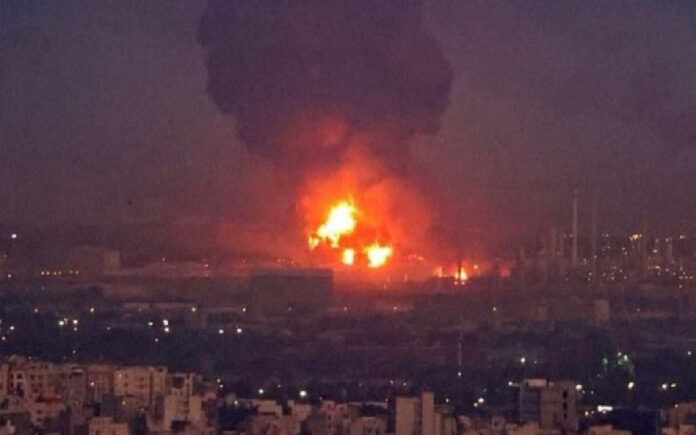Tehran/Jerusalem: Israel initiated airstrikes early Saturday on what it described as Iranian military assets, responding swiftly to a missile attack launched by Iran on October 1. Israeli military representatives referred to the strikes as “precise”, though specifics regarding the targets remain undisclosed.
“The regime in Iran and its proxies in the region have been relentlessly attacking Israel since October 7 – on seven fronts – including direct attacks from Iranian soil,” stated an official Israeli military statement. “Like every other sovereign country in the world, the State of Israel has the right and the duty to respond.”
Tehran residents reported a series of explosions, with Iran’s state-controlled media initially attributing the sounds to activated air defense systems. One resident described experiencing at least seven blasts, noting that they reverberated across the area.
A representative from Iran’s Civil Aviation Organization announced that all flights across various routes have been suspended until further notice, as reported by the country’s state news agency, IRNA, on Saturday.
The situation appears to have broader regional implications, as Syria claimed its air defenses intercepted “hostile objects” over its airspace. The attack on Iran occurred shortly after U.S. Secretary of State Antony Blinken concluded a diplomatic tour of the Middle East, where U.S. officials emphasized the importance of containing the conflict and avoiding any actions that could threaten Iranian nuclear facilities.
Also Read | Israeli Airstrikes Hit Syrian Military Sites as Iraq Suspends Flights Over Regional Tensions
The White House acknowledged the strikes, with National Security Council spokesman Sean Savett stating, “We understand that Israel is conducting targeted strikes against military targets in Iran,” though he declined further comment, redirecting inquiries to Israeli authorities.
Israel’s airstrikes reflect its promise for a firm response to Iran’s missile launch, which Tehran had justified as retaliation for Israeli actions against Hezbollah, an allied force in Lebanon. Since Iran’s 1979 Islamic Revolution, Israel and Iran have been locked in a protracted, indirect conflict, recently escalating into direct exchanges.
Also Read | Russian Missile Attack Claims Three Lives in Dnipro, Damages Homes and Medical Facility
In response, Iran’s civil aviation authority has closed its airspace until further notice. Flight tracking data shows multiple civilian flights rerouting from Tehran during the time of the strikes.
This decision to strike Iranian military targets followed extensive deliberations within Israel’s security cabinet and consultations with U.S. officials, including a call between Prime Minister Benjamin Netanyahu and President Joe Biden.



